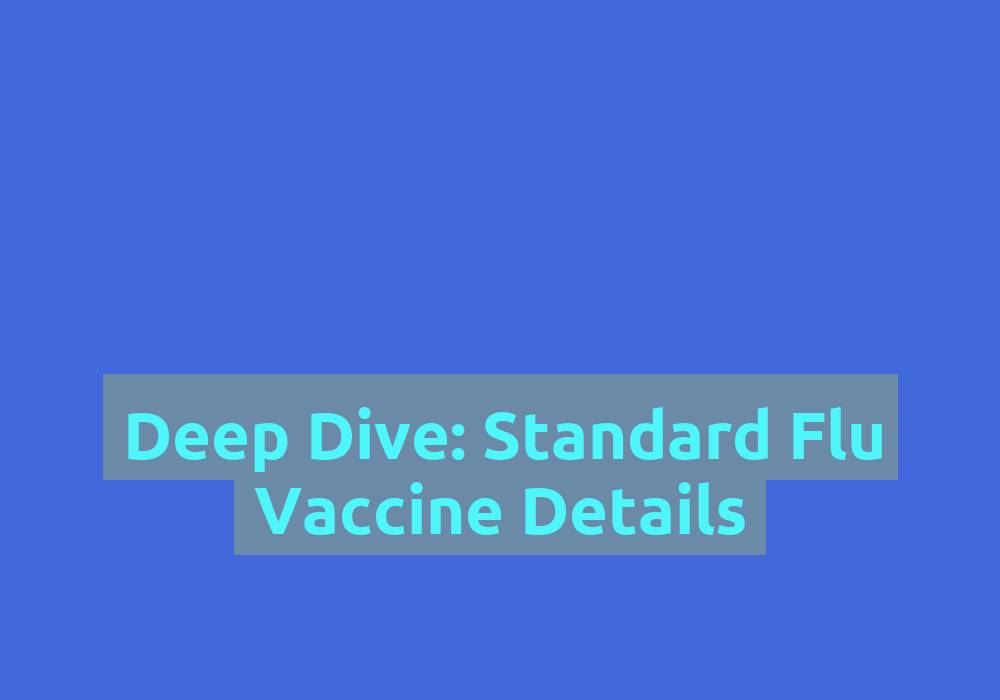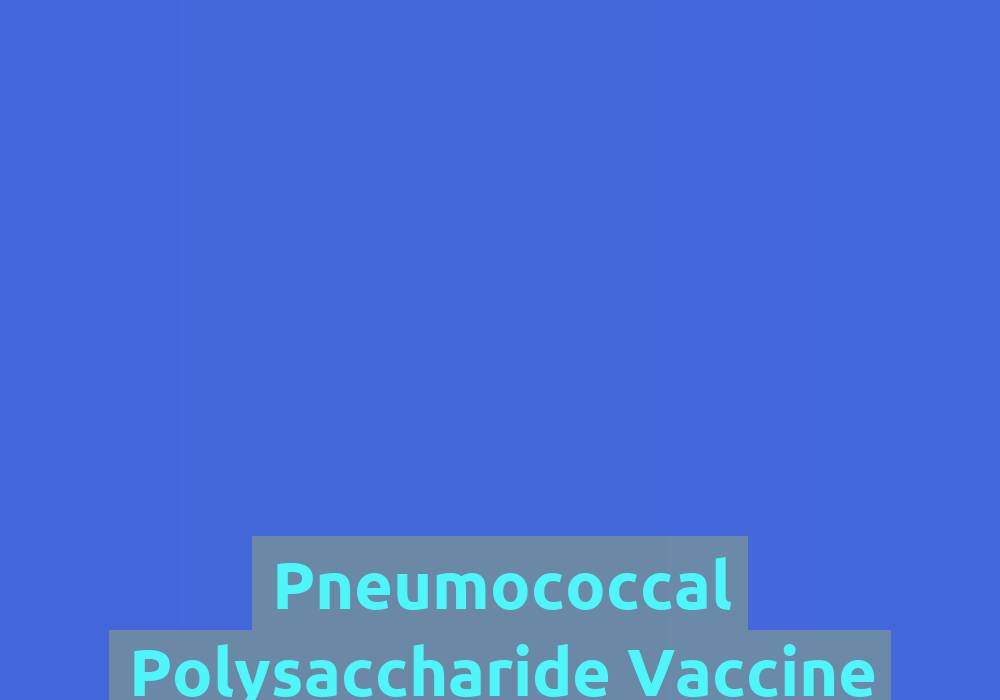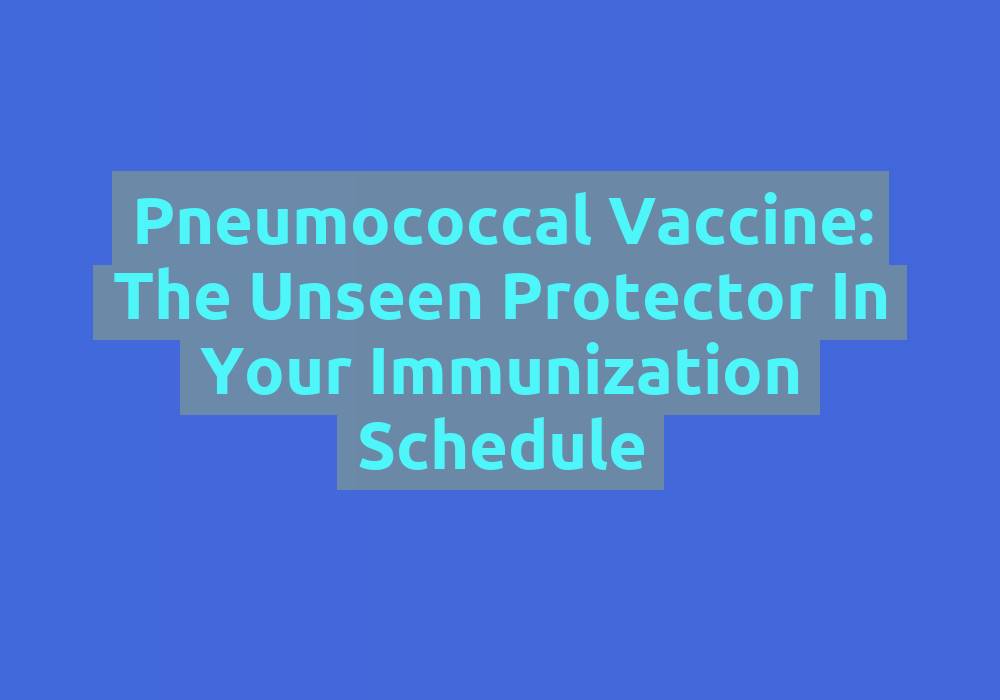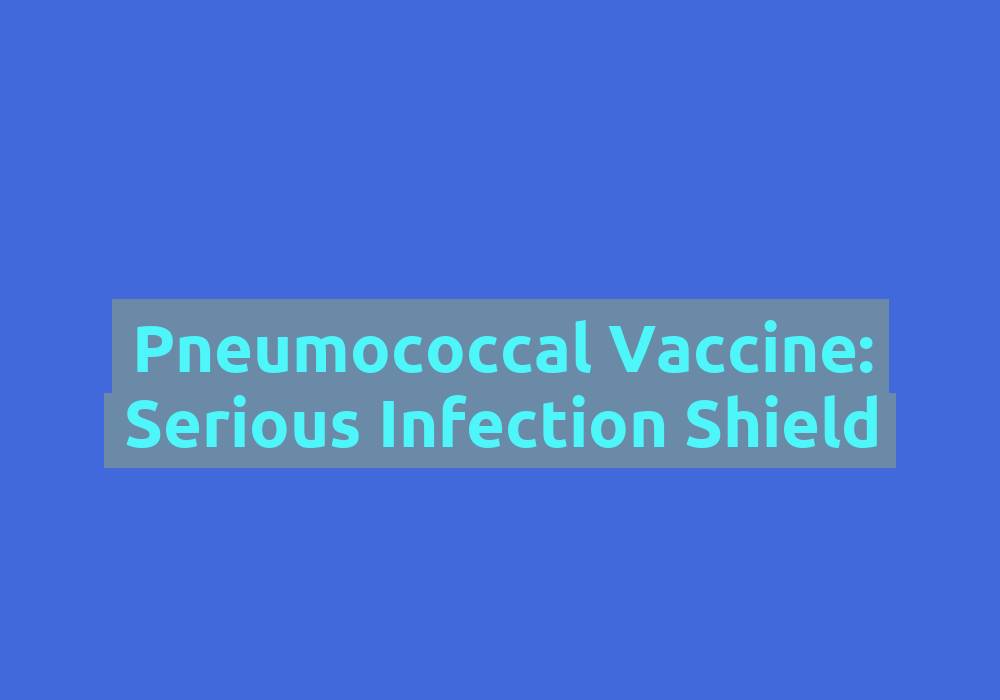High-Dose Flu Vaccine Pros and Cons
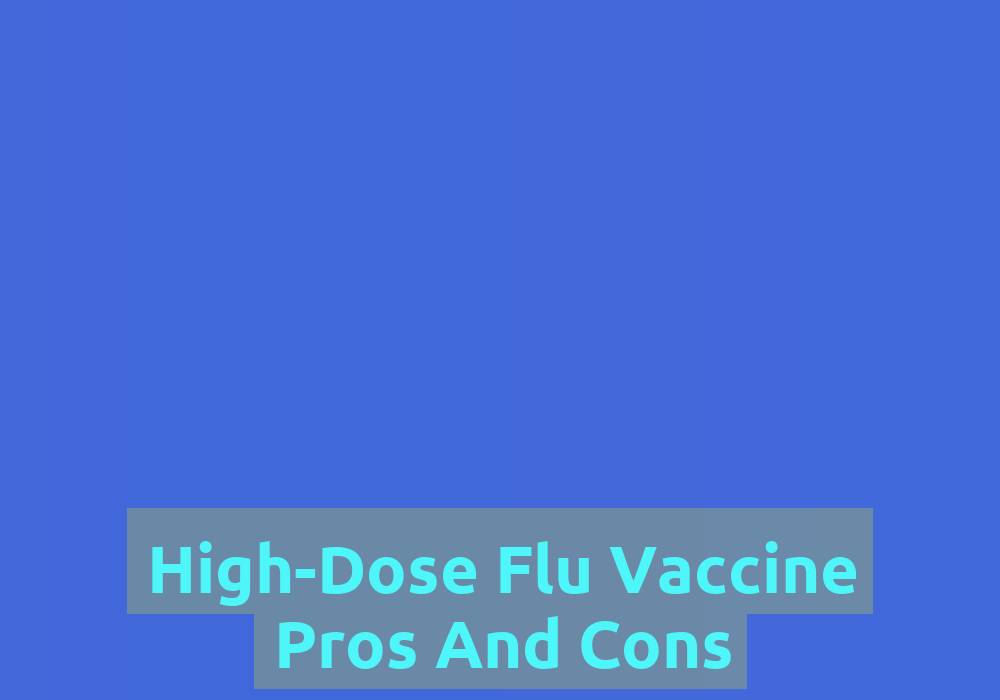
The high-dose flu vaccine has gained popularity in recent years, especially among older adults who are more susceptible to the flu and its complications. This article aims to provide an in-depth analysis of the pros and cons of the high-dose flu vaccine, enabling you to make an informed decision about your flu vaccination options.
Understanding the High-Dose Flu Vaccine
The high-dose flu vaccine is specifically formulated for individuals aged 65 and above, as this group tends to have a weaker immune response to the standard flu vaccine. It contains four times the amount of antigen found in a regular flu shot, which aims to enhance the immune response and provide better protection against influenza viruses.
Pros of the High-Dose Flu Vaccine
-
Increased Protection: The high-dose flu vaccine offers a higher concentration of antigen, which stimulates a stronger immune response. This can result in better protection against the flu, reducing the chances of contracting the virus. Additionally, studies have shown that the high-dose vaccine can be up to 24% more effective in preventing flu-related hospitalizations in older adults compared to the standard flu shot.
-
Reduced Illness Severity: In case you do get infected with the flu despite being vaccinated, studies suggest that the high-dose vaccine may reduce the severity of the illness. It may help lower the risk of complications and hospitalizations associated with the flu. This is particularly important for older adults who are more susceptible to severe flu symptoms and complications.
-
Tailored for Older Adults: As mentioned earlier, the high-dose flu vaccine is specifically designed for individuals aged 65 and above. Since older adults are more vulnerable to flu-related complications, this vaccine addresses their unique needs and provides an extra layer of protection. It takes into account the age-related decline in immune function, increasing the chances of a robust immune response.
-
Enhanced Immune Response: As we age, our immune system weakens, making it more challenging to fight off infections. By offering a higher antigen concentration, the high-dose flu vaccine helps to boost the immune response, potentially increasing the effectiveness of the vaccination. This is crucial for older adults who may have a diminished response to the standard flu shot.
Additional benefits of the high-dose flu vaccine include:
- Lowering the risk of flu-related complications such as pneumonia, bronchitis, and worsening of chronic medical conditions.
- Reducing the likelihood of hospitalization and the need for medical interventions.
- Providing an extended duration of protection compared to the standard flu shot, which is especially important for older adults who may have a delayed immune response.
Cons of the High-Dose Flu Vaccine
-
Increased Risk of Side Effects: With the higher antigen concentration, there is a slightly higher risk of experiencing side effects compared to the standard flu shot. These side effects can include soreness at the injection site, muscle aches, and low-grade fever. However, it’s important to note that these side effects are typically mild and short-lived. Most individuals tolerate the high-dose vaccine well without any significant adverse reactions.
-
Limited Availability: The high-dose flu vaccine may not be as readily available as the standard flu shot. Due to its specific formulation for older adults, it may be more challenging to find healthcare providers or pharmacies that offer this option. However, as awareness and demand for the high-dose vaccine increase, availability is expected to improve. It’s advisable to check availability in your area or consult with your healthcare provider beforehand.
-
Increased Cost: Another potential drawback of the high-dose flu vaccine is its higher cost compared to the standard flu shot. Since it contains a greater amount of antigen, it is often priced higher. However, the added protection it offers may outweigh the cost factor, especially for individuals at higher risk of flu-related complications. Medicare Part B and many private insurance plans cover the high-dose flu vaccine for eligible individuals, reducing the financial burden.
-
Limited Effectiveness against Non-Influenza Viruses: While the high-dose flu vaccine provides superior protection against influenza viruses, it does not guard against other respiratory viruses. It’s essential to remember that the flu is just one among many potential respiratory illnesses you may encounter during flu season. Taking preventive measures such as practicing good hand hygiene, avoiding close contact with sick individuals, and maintaining a healthy lifestyle can help reduce the risk of other respiratory infections.
Conclusion
Ultimately, the decision to choose the high-dose flu vaccine or the standard flu shot depends on your individual circumstances and preferences. If you are 65 years or older and concerned about the potential risks and complications associated with the flu, the high-dose vaccine may offer added benefits. However, it’s essential to consult with your healthcare provider to discuss your specific health needs and determine the most suitable option for you.
Remember, regardless of the type of vaccine you choose, getting vaccinated against the flu remains one of the most effective ways to protect yourself and those around you from this contagious illness. Stay informed, make an informed decision, and stay healthy during flu season. By taking proactive measures, you can reduce the risk of flu-related complications and promote overall well-being. Stay updated on flu vaccine recommendations and consult with your healthcare provider for personalized advice.
FAQ
-
Who is the high-dose flu vaccine designed for?
The high-dose flu vaccine is specifically formulated for individuals aged 65 and above, as this group tends to have a weaker immune response to the standard flu vaccine.
-
What are the pros of the high-dose flu vaccine?
- Increased Protection: The high-dose flu vaccine offers a higher concentration of antigen, resulting in better protection against the flu.
- Reduced Illness Severity: It may reduce the severity of the illness and lower the risk of complications and hospitalizations associated with the flu.
- Tailored for Older Adults: It addresses the unique needs of older adults and takes into account the age-related decline in immune function.
- Enhanced Immune Response: It helps boost the immune response, potentially increasing the effectiveness of the vaccination.
- What are the cons of the high-dose flu vaccine?
- Increased Risk of Side Effects: There is a slightly higher risk of experiencing side effects compared to the standard flu shot, such as soreness at the injection site, muscle aches, and low-grade fever.
- Limited Availability: It may be more challenging to find healthcare providers or pharmacies that offer the high-dose vaccine.
- Increased Cost: It is often priced higher than the standard flu shot.
- Limited Effectiveness against Non-Influenza Viruses: It does not guard against other respiratory viruses.
-
Should I choose the high-dose flu vaccine or the standard flu shot?
The decision depends on your individual circumstances and preferences. If you are 65 years or older and concerned about the potential risks and complications associated with the flu, the high-dose vaccine may offer added benefits. It’s essential to consult with your healthcare provider to discuss your specific health needs and determine the most suitable option for you.
